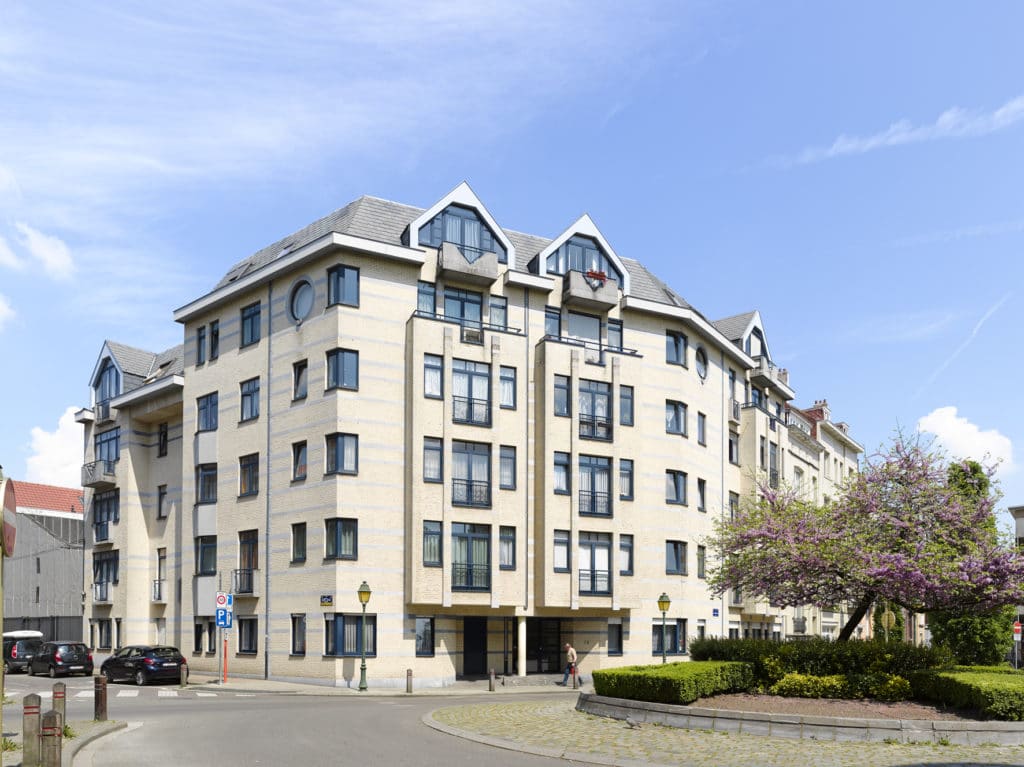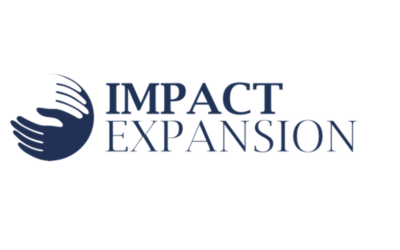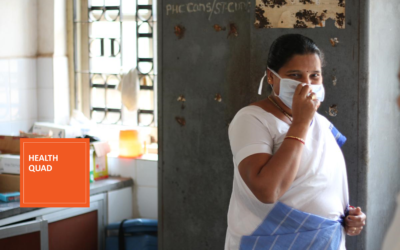From New York to London, to Brussels or Mumbai, the world has stood up and cheered for its medical staff and essential frontline workers. Nurses, garbage collectors, food store cashiers, … all held their post during lockdown to help us cope and recover. They have been recognized as the true heroes of this crisis.
Yet, while countries acclaim frontline workers, the benefits these employees receive remain disproportionately low. In Belgium for instance, a starting nurse typically earns a net salary of 1,700€ per month. This is just above the net Belgian minimum wage of 1,216€. For many other essential workers, minimum wage is all they get. Those salaries do not generally increase much over time: nurses in Belgium can on average expect a raise of a mere 1,25% per year. In cities like Brussels, this has to cover expenses such as childcare, food and, the topic of this piece, rent.

When the fundamental right to lodging faces a demand & supply issue
Proper accommodation is an elementary need and fundamental right. Yet, for many, these two concepts battle each other on a daily basis.
The initial wages of many essential workers are often already too low to cover the cost of a decent place in big cities. And their rise often fails to catch up with regular living cost increases. As a matter of fact, while rent surges seem to go along with minimum wage increases in Belgium, many other living costs from heating to internet must be considered. For instance, in Brussels, average housing rent rose by 13% since 2008, from 653€ in 2008 to 739€ in 2018. This represents more than half of the minimum wage, and close to half of a nurse’s starting salary.
To tackle this situation, public social housing companies exist, but offer a limited response. In Brussels in 2018, only 8% of the existing housing was used for social housing, for a total number of 41,000 units. Currently, over 44,000 households are on the waiting list for social housing in Brussels. And the situation is the same in many other cities. Moreover, many fragile populations do not actually qualify for social housing. For instance, the current conditions on income limits often don’t allow single-parent nurses or educators access to social housing programmes. An additional solution is finding quality affordable housing, which do not have access conditions, but where supply outgrows demand once again.

A building of inclusio, an affordable and social housing fund in Belgium
By putting our essential workers in the spotlight, COVID-19 brought forward the daily challenges they face. Namely, access to quality affordable housing close to their place of work. It has highlighted the need to urgently increase the supply of affordable housing and adapt the access conditions of social housing.
While access conditions may take years to evolve, we believe a collaboration with the private sector can greatly and quickly increase the supply of social and affordable housing. KOIS, who has been active on this topic for 10 years, believes in an impact finance solution: Social & Affordable Housing Funds.
Affordable housing funds: increasing supply… with social & financial returns
Financing social & affordable housing privately comes as a response to the current supply issue. Additionally, it can be a profitable investment sector. In fact, private capital can come in to fill the gap in existing affordable housing, while providing market returns. How? By buying and renovating or building large amounts of housing and renting it long term at a lower than market rental levels. In fact, one of the main profit hurdles in rental real estate is inoccupancy. By renting entire buildings long-term to public or social agencies, a complete occupancy and low risk market-adjusted returns can be achieved.
“Social and affordable housing funds bring great added social value. It puts in contact people willing to invest in housing in general, with those who need accommodation the most. And the good news is that on a risk-adjusted basis, returns are in line with the market! This way, we can add value to society, and create a real impact.”
François de Borchgrave, Co-Founder & Managing Partner, KOIS
This model has raised many questions, such as the long-term orientation and accountability of the funds. Certain groups may wonder whether for-profit organizations are truly there to add value in the sector in the long term. But, when rightly managed, housing funds can help bring significant capital and expertise to a sector that truly needs it. This, while creating a concrete positive impact for people in fragile situations.
This belief sits at the core of the first Belgian affordable & social housing fund, co-founded by KOIS in 2015: Inclusio.
Inclusio: the Belgian housing fund providing hundreds of families with quality affordable housing
In 2015, KOIS, Bank Degroof-Petercam & real-estate developer Revive co-founded Inclusio, with the aim to provide an answer to the current supply issue.
Inclusio buys, builds and renovates residential buildings in cities across Belgium. It then rents them long-term to social and public real-estate agencies for a lower than market rent. Since its launch, Inclusio has raised over € 90M in equity. Today, it already offers affordable and quality housing to almost 900 residents, with an average rent of € 477. This is well below usual rents across Belgian cities. In some cases, residents are also supported by reinsertion programs, to help them stay out of the street or find jobs for instance, making it a complete impact solution. And, Inclusio will offer its investors an annual dividend yield of around 3%, on top of assets value appreciation.
“I’m particularly proud of what we have been able to achieve over a short period of time. Today, Inclusio is providing housing to over 900 families. But, this is only the beginning of the story! In 2025 we aim to have 3,000 apartments and a total portfolio value of €400 million. Social impact is a prerequisite for Inclusio, and a minimum rental yield allows us to roll out our business model.”
Xavier Mertens, CEO, Inclusio
Inclusio has been a great Belgian success, but it won’t stop there. The fund has many plans to increase its impact in the future. Inclusio intends to raise additional capital in order to pursue its growth strategy exclusively focused on social assets. A possibility for doing so is an IPO, which would offer liquidity to investors without having to sell housing units, leading to a secured social mission over the long term.
The start of a more comprehensive affordable housing solution?
Models like that of Inclusio are starting to erupt around the world. Sage Housing, for instance, is a provider of affordable homes based in the UK. However, such initiatives are still too little to cover the huge global need for more affordable housing.
As we slowly recover from the pandemic, we can learn from its lessons. One of them being that we need to act now so everyone, including essential workers, gets the right to proper accommodation. Looking ahead, public and private actors will need to collaborate to not only increase supply of affordable housing, but also adapt conditions of existing social housing.
The good news? Part of the solution already exists.
Learn more about Inclusio by visiting our project page or going to www.inclusio.be.




